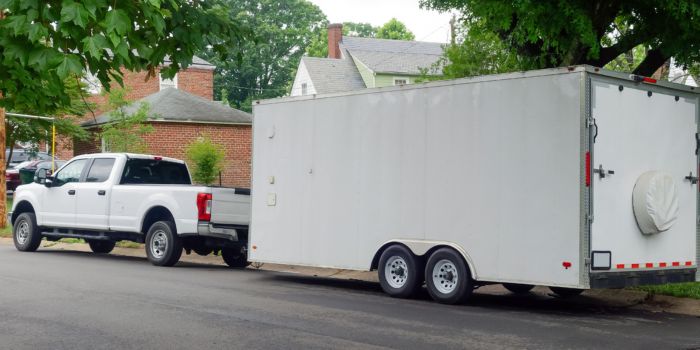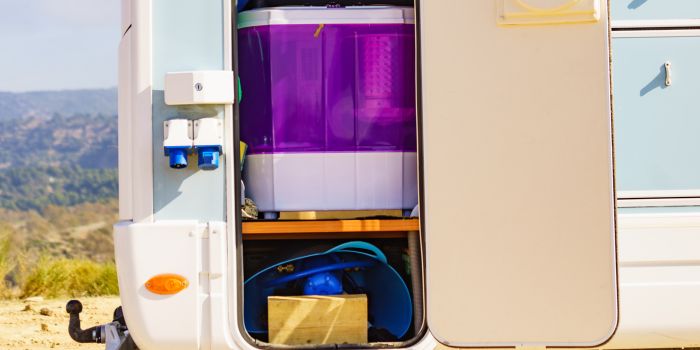How To Pack Out Your Race Trailer: Must-Have Items
Packing a race trailer for a fun weekend ahead means grabbing the essentials and some of these must-have items—take a closer look at this packing guide.
Racing enthusiasts know that success on the track starts long before the green flag drops. Your race trailer is a mobile headquarters, tool shop, and storage unit all rolled into one. Getting it properly equipped means a smooth race day and no scrambling to find essential items when you need them most.
Whether you’re hauling a dirt track car to your local speedway or traveling the circuit with a high-performance machine, smart packing strategies will keep you organized and prepared. The right equipment and supplies ensure you can handle mechanical issues, maintain your vehicle, and focus on what matters most—winning races.
Local racing communities rely on tried-and-true packing methods. Veterans understand that every square inch of trailer space counts, and they’ve learned which items earn their place through experience. From basic tools to specialized racing equipment, certain essentials should find a home in every racer’s mobile setup.

Ready for a weekend at the track? Read on to learn how to pack out your race trailer with several must-have items.
Essential Tools and Equipment
Your toolbox forms the backbone of any well-equipped race trailer. Start with a comprehensive socket set that includes metric and standard sizes, since modern race cars often mix measurement systems. Quality wrenches, including combination wrenches from 8mm to 19mm and 5/16 inch to 3/4 inch, handle most bolt sizes you’ll encounter.
Don’t overlook specialty racing tools. A good tire pressure gauge rated for racing pressures, tire pyrometer for temperature readings, and a reliable air gun for quick wheel changes will serve you well. Racing jack stands rated for your car’s weight provide safe working conditions, while a quality floor jack speeds up tire changes and suspension adjustments.
Safety and Emergency Items
Safety equipment protects you and your investment. Fire extinguishers rated for automotive use should be mounted in easily accessible locations throughout your trailer. Many racers install one near the entrance and another near the work area. Check expiration dates regularly and replace as needed.
First aid supplies handle minor injuries that occur during preparation and maintenance. Include bandages, antiseptic wipes, pain relievers, and any personal medications. A basic first aid manual can help less experienced crew members respond appropriately to injuries.
Emergency road service items keep you moving when mechanical problems strike your tow vehicle. Jumper cables, a tire repair kit, emergency triangles, and a flashlight with fresh batteries can save expensive towing charges. Keep important phone numbers handy, including your insurance company and preferred towing service.
Fluids and Lubricants
Race cars consume fluids at higher rates than street vehicles, making adequate supplies crucial. Engine oil specific to your racing application should include several quarts beyond what your engine holds. You may need different viscosities for varying weather conditions.
Gear oil for differentials and transmissions prevents costly damage from inadequate lubrication. Racing applications often require synthetic lubricants that withstand extreme temperatures and loads. Brake fluid rated for racing use resists fade under hard braking conditions.
Additional fluids to stock include:
- Power steering fluid for cars equipped with hydraulic steering
- Carburetor cleaner for fuel system maintenance
- Penetrating oil to free stuck bolts and components
- Assembly lubricant for engine rebuilds
- Chain lube for drive chains on certain race cars
Spare Parts and Components
Strategic spare parts inventory prevents minor failures from ending your racing day. Belts and hoses top the list since they’re relatively inexpensive but can cause major problems when they fail. Stock at least one spare of each belt your engine uses, plus extra radiator and heater hoses.
Electrical components fail frequently in racing environments. Spare fuses in all required amperage ratings, replacement bulbs for lights, and basic relay components keep electrical systems functioning. Ignition components like spark plugs, plug wires, and distributor caps wear quickly under racing conditions.
Suspension components endure tremendous stress during competition. Shock absorbers occasionally leak or fail, while springs can break under extreme loads. Race trailers with living quarters often have additional storage space that accommodates these larger spare parts without compromising living area functionality.
Organization and Storage Solutions
Effective organization systems save valuable time during race preparation. Clear storage containers let you quickly identify contents without opening multiple boxes. Label everything clearly, including expiration dates for fluids and components with limited shelf life.
Tool organization prevents time waste searching for specific items. Foam tool organizers keep sockets and wrenches in designated spots, while magnetic strips hold frequently used tools within easy reach. Rolling tool carts provide mobility around your race car while keeping tools organized.
Cleaning and Maintenance Supplies
Race cars require frequent cleaning to maintain performance and identify potential problems. Stock various cleaning supplies, including degreaser for engine bays, wheel cleaner for different rim materials, and general-purpose automotive soap for bodywork.
Rags and towels see heavy use throughout race weekends. Disposable shop rags handle dirty jobs, while microfiber towels work better for final detailing tasks. Paper towels serve multiple purposes, from cleaning to temporary gasket material.

Cleaning tools include various brushes for different applications. Wire brushes remove rust and heavy buildup, while soft-bristled brushes clean delicate components without damage. A pressure washer attachment for your water supply speeds cleaning between races.
Communication and Documentation
Modern racing benefits from good communication systems. Two-way radios keep crew members coordinated during practice and racing sessions. Spare batteries and charging systems support reliable operation throughout race weekends.
Tire pressure logs, fuel consumption records, and setup sheets document important information for future reference. Waterproof storage protects these records from spills and weather. Many successful racers maintain detailed logs that identify trends and optimize performance.
Timing equipment evaluates changes and tracks performance improvements. Basic stopwatches work for many applications, though electronic timing systems provide more precise data for serious competitors.
Preparing for Success
Smart race trailer packing combines experience with systematic organization. Regular inventory checks ensure supplies stay current and available when you need them most. Successful racers and race crews often review their packing lists after each race weekend, adding items that would have been helpful and removing things that proved unnecessary.
Local racing communities share knowledge about effective packing strategies. Veterans often mentor newcomers, sharing hard-earned wisdom about which items prove most valuable. Building relationships within your racing community provides access to this collective experience.
Your race trailer is your mobile pit facility and the foundation of racing success. Taking time to pack it properly with quality equipment and items sets the stage for enjoyable and competitive racing experiences.
Looking for an adventure this Fall?




